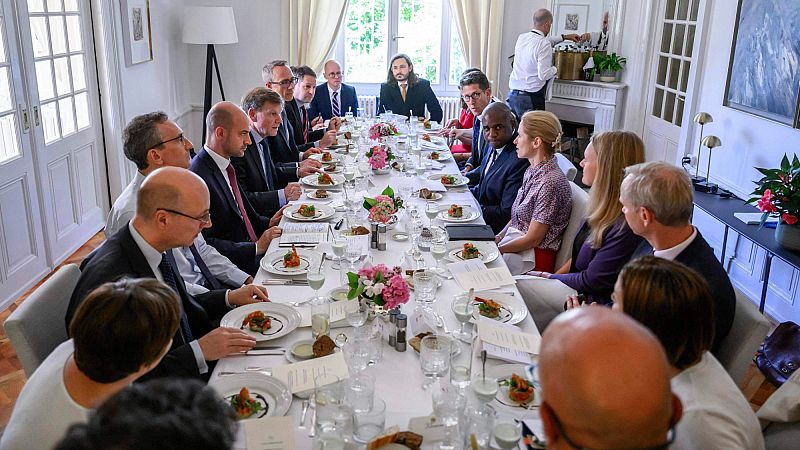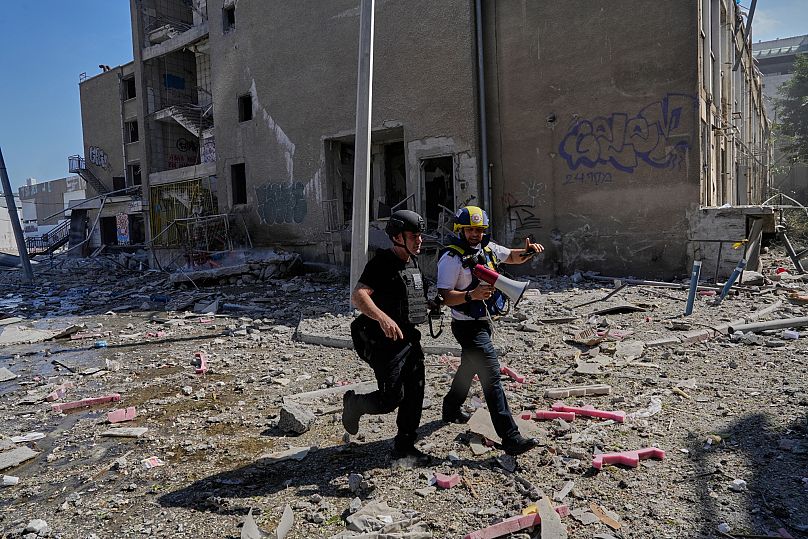
That’s it from the Euronews team for now as we stop following developments on day eight of the Iran-Israel conflict and close the live blog.
Before we sign off, here’s a summary of some of the key events from Friday evening.
Our journalists will be back with more live coverage from Saturday morning.
Day eight summary
- The EU's Foreign Policy Chief Kaja Kallas has said that talks with Iran must remain open after discussions in Geneva.
- Germany's Foreign Minister Johann Wadephul said it is important that the US is involved in further talks, while his French counterpart, Jean-Noël Barrot, said Iran is prepared to continue discussions.
- British Foreign Secretary David Lammy said that "we are keen to continue ongoing discussions and negotiations with Iran, and we urge Iran to continue their talks with the United States."
- In an update to the UN Security Council, the head of the International Atomic Energy Agency (IAEA) Rafael Grossi said attacks on nuclear facilities should never take place.

- UN Secretary General António Guterres warned the Security Council that any expansion of the Iran-Israel conflict could start a fire that no one can control, saying "We are not drifting toward crisis – we are racing toward it."
The British government said it is working with Israeli authorities to provide charter flights to evacuate UK nationals from the country.
- The UK, Ireland and Switzerland have all announced the temporary withdrawal of staff from their embassies in the Iranian capital Tehran due to the deteriorating security situation.
- Iraq's ambassador to the United Nations told the Security Council that 50 Israeli warplanes planes entered Iraqi airspace, in what he called "violations of international law."







